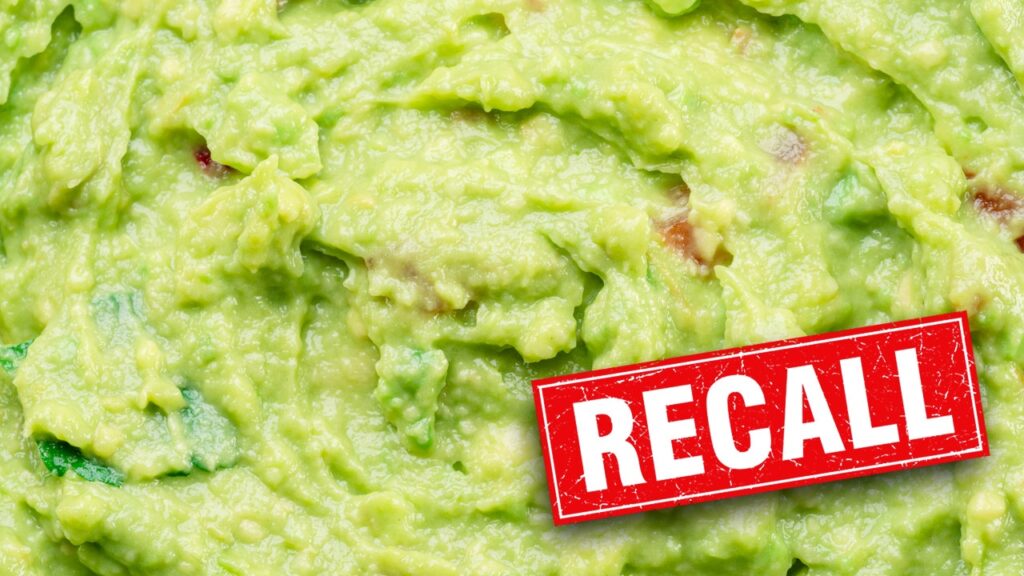:max_bytes(150000):strip_icc():format(jpeg)/youngmanworkingonlaptopathome-06657735274546d387cb3267a214086a.jpg)
Conventional wisdom says that you shouldn’t get a certificate of deposit (CD) if you might need to access the cash before the term is over. That’s because most CDs have an early withdrawal penalty if you withdraw before maturity.
However, there are some cases in which an early withdrawal penalty shouldn’t be a deterrent, like if you have an emergency expense or down payment to make, or if interest rates have gone up significantly.
Learn more about how CD early withdrawal penalties work, and how to decide if and when they may be worth overlooking.
Key Takeaways
- Cashing out a CD early will usually trigger some sort of penalty.
- CD early withdrawal penalties are worth incurring when you need the money for an emergency or down payment, or when rates have risen so much that you’d be better off reinvesting the funds into a more lucrative option.
- Understanding a bank’s or credit union’s early withdrawal policy is important when deciding whether to open a CD, because you may find onerous penalties at some financial institutions.
- If you want regular access to your savings look into high-yield savings accounts, which don’t significantly restrict your ability to withdraw funds.
What is a CD early withdrawal penalty? When you open a CD, the financial institution pays you fixed interest on your principal through the end of a predetermined term. In exchange, you agree not to touch the funds until the maturity date. You’ll typically pay an early withdrawal penalty if you break that agreement and take your money before the end of the term. The penalty is usually some number of months of interest. Some penalties are relatively mild, while others are significantly unfavorable and should be avoided entirely.
When Is a CD Early Withdrawal Worth It?
Making an early withdrawal on a CD shouldn’t be something you plan on doing, but you should at least understand the costs if a situation arises that warrants pulling your money out. Some scenarios where it might make sense to do that include:
- To cover an emergency expense: If an unexpected cost arises because something breaks down or because of an accident or injury, withdrawing from a CD early may be one of the least costly ways to come up with the funds you need. Sure, you’ll lose out on some future earnings, but unlike a credit card or personal loan, you won’t have to pay interest and you won’t owe anyone repayment.
- To make a down payment: If you’re taking out a mortgage, for example, and a larger upfront payment can help you score a better interest rate or more favorable terms, tapping into CD savings—even if you incur an early withdrawal fee—may save you money in the long run.
- When rates are rising and much better yields become available: If you’re tied up in a longer-term CD and then rates begin to shoot up, you may come out ahead by removing the funds and reinvesting them in a CD with a higher yield.
What’s a Typical Early Withdrawal Penalty?
The most typical structure for an early withdrawal penalty is that you’ll forfeit a set number of months of interest, depending on the length of the CD.
For instance, a common penalty on a one-year CD is three months of interest. If that’s the case, if you cash out after just six months, you’d be paid three months of interest instead of six (having forfeited three months’ worth). But a two-year CD from the same bank may carry a penalty of six months’ interest.
Other Types of Early Withdrawal Penalties
Instead of losing a set number of months of interest, some CDs use different calculations or methods to determine an early withdrawal penalty.
- A percentage of the balance: You may find that some banks impose a set percentage, such as 1% of your balance, rather than a number of months of interest.
- A flat fee: Some banks have a minimum penalty amount (e.g., $25) if you withdraw early.
- An amount of interest even if the interest hasn’t yet been earned: This type of condition isn’t favorable because it has the potential for you to end up with less money than you started with. For example, a CD might have a penalty of six months of interest even if you’ve only had it open for two months.
Never invest in a CD that can lose principal. It’s not ideal to lose earnings either, but you definitely don’t want to put yourself in a worse position than where you started.
Factors That Affect Early Withdrawal Penalties
Though many CDs have similar rules for early withdrawal penalties, slight differences could affect how much money you walk away with. Some of the determining factors include:
- The bank or credit union: Each financial institution has discretion to set its own CD terms and conditions, including early withdrawal penalties. Some banks and credit unions are more lenient than others.
- The length of the CD: Penalty amounts vary depending on the CD term. Usually, longer-term CDs (more than a year) will require you to forfeit more months of interest than shorter-term CDs (less than a year).
- The yield: Higher yields will tend to have steeper penalties because the formula for many CDs is to subtract a set number of months of interest. It’s worth doing some number-crunching to see what you’d walk away with if you were to access your money early.
Are No-Penalty CDs a Good Idea?
You might be intrigued by the concept of no-penalty CDs because they seem to have no downside. While it’s true that you do get to avoid early withdrawal fees, these products usually have a lower yield than regular CDs. The interest you’d lose out on by getting a lower rate may be more costly than the penalty you’re trying to avoid.
Some no-penalty CDs may have stipulations such as not allowing partial withdrawals, and you may have to give advance notice when you want to withdraw.
How to Minimize CD Withdrawal Penalties
If you’re new to savings strategies like CDs and want to do your best to avoid penalties for dipping in early, here are a few pointers to keep in mind,
- Find out where interest rates are headed: If the Federal Reserve is expected to adjust the federal funds rate over the next year or so, that means CD rates will move in the same direction as well. So, if you expect rates to go up, it may not be a good time to lock in a longer-term CD because you could miss out on a better rate later. On the other hand, if rates are predicted to fall, you do want to grab a CD that will let you earn a higher rate now and for a long time into the future.
- Build at least part of your emergency fund first: You don’t want to tie up every penny of your savings for an extended period of time in a CD. Keeping some of your savings liquid is wise.
- Choose a shorter term: It’s a lot easier to avoid an early withdrawal penalty on a three-month CD than a five-year one. Luckily, many banks and credit unions offer promotional CDs with short term options and strong yields.
- Build a CD ladder: Instead of investing all of the funds in a single CD, a CD ladder strategy would have you divide your deposit among a few CDs with different terms. This gives you periodic access to your funds, and as each CD matures, you can decide whether to keep the money or reinvest in another CD.
- Buy multiple CDs with similar terms: If you don’t want to build a CD ladder, you could break up the money you have to invest into, say, quarters, and invest each quarter in separate CDs. That way, if you need some funds, you may only need to break one or two CDs and you could keep the rest of the CDs intact. You could even stagger the timing of your CD purchases if you’re unsure where interest rates are headed.
If you’re building an emergency fund or want to make sure some of your savings are liquid, consider a high-yield savings account. High-yield savings accounts provide a good return on your money while allowing you to withdraw it as needed. Some withdrawal restrictions may apply, depending on the particular bank or account, but they’re much more lenient than CDs.
How to Choose a Good CD
- Look for a strong interest rate: Banks and credit unions are competing for your business, so search for the best CD rates when deciding where to put your money. That way, even if you do end up paying a penalty, you’ll still come away with some good earnings.
- Do your homework on the early withdrawal penalty: Look over all the terms and conditions before committing to a CD, but especially the penalty for early withdrawal.
- Select the best term for your needs: Think about your savings goals and when you might need access to the money. Try to match up with a CD timeline that works for you. It’s better to go shorter rather than longer to avoid a potential penalty.
Frequently Asked Questions (FAQs)
How Much Can You Withdraw From Your CD?
You can withdraw all your money and anything earned from a CD at any time. But if you do so before the maturity date, most CDs will charge an early withdrawal penalty.
What Should I Do If Rates on CDs Rise Significantly?
If CD rates rise significantly when you already have your cash tied up in one or more CDs, one option is to withdraw early and transfer the funds to a new CD. You’ll first want to figure out if the new rate is high enough to offset the early withdrawal penalty. Another option is to leave the money where it is, especially if you only have a short amount of time left. Once your current CD matures, you can move the funds into a new high-yield CD.
Do All CDs Have Early Withdrawal Penalties?
The majority of CDs have early withdrawal penalties, but there are some products marketed as no-penalty CDs. No-penalty CDs let you withdraw without forfeiting your interest or paying another type of penalty, but they typically have a lower yield than regular CDs.
What Happens to My Funds If My CD Matures but I Don’t Redeem It?
When a CD reaches its maturity date, you will have a grace period during which you can withdraw the funds. If that grace period ends and you haven’t withdrawn the funds, the CD will renew to a similar term at the current rate.
The Bottom Line
Overall, the best protection against early withdrawal penalties is not opening a CD with money that you’ll need to access before maturity. The best course of action is to avoid early withdrawal penalties by leaving your money in for the full term—but be sure to understand the penalty terms in case you can’t. Remember that in some circumstances, such as if CD rates increase significantly, withdrawing the money may be worth the penalty (to reinvest in a higher-yield CD, for instance).



